The post-audit mechanism must be strong enough.
Highly agreeing with the necessity of issuing a National Assembly Resolution on a number of special mechanisms and policies for private economic development, delegate Nguyen Thi Viet Nga (Hai Duong) said that the draft Resolution has an open and practical approach, focusing on removing barriers and creating favorable conditions for businesses, business households and individual businesses.
In particular, Article 4 of the draft stipulates the principles of state management of the private economic sector, shifting from pre-inspection to post-inspection, especially in the management of business conditions. This is a direction in line with international practices, contributing to reducing compliance costs for businesses, encouraging start-ups, innovation and production expansion.
However, Ms. Viet Nga suggested that if there is no strong, transparent and effective post-audit mechanism, this policy can easily become a loophole for "ghost companies" to exploit.
“In practice, many people have taken advantage of the open policy to set up hundreds of companies that do not actually operate, buy and sell invoices, evade taxes, launder money, cause budget losses and distort the competitive environment. In one case, authorities discovered more than 600 'ghost' enterprises issuing over 1 million fake invoices, with a transaction value of nearly 64,000 billion VND,” emphasized delegate Nga.
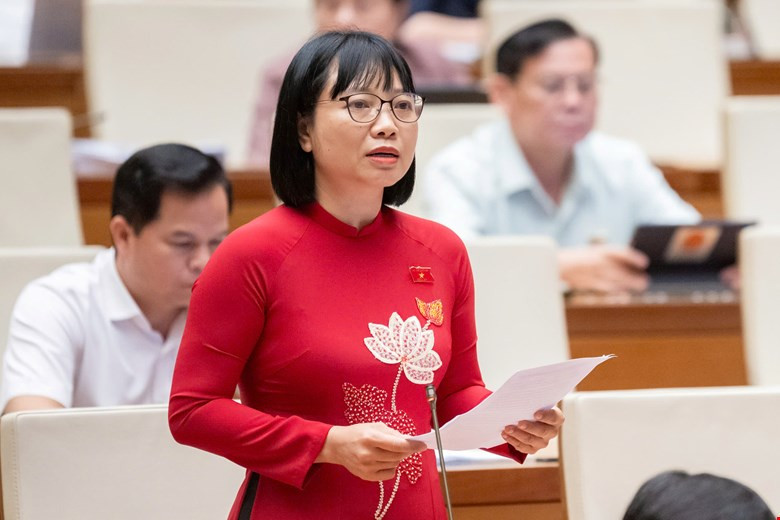
Therefore, delegate Nguyen Thi Viet Nga proposed adding specific requirements for the post-inspection system; data connection between tax, customs and banking agencies; field inspection; application of digital technology in monitoring and sanctions with sufficient deterrence.
At the same time, it is necessary to clearly define the sectors and fields that are required to be pre-inspected, based on risks and international experience, to avoid widespread or loose application.
Expecting this resolution to be like "a gust of wind that will blow the kite of the private economy far", Vice Chairman of the Committee for Culture and Society Ta Van Ha said that Vietnamese private enterprises face many difficulties that need to be resolved in order to develop.
He recommended eliminating overlapping regulations in current laws, and adding policies to support international trade for businesses to compete effectively in the international market.
"Businesses also need policy stability. Many new businesses are having a hard time starting up, but policies are constantly changing. What businesses fear the most is that while they are focusing on investing, policies will change and they will have to go back to the starting point," the delegate stated.
Proposal to extend tax exemption period for businesses
Delegate Nguyen Nhu So ( Bac Ninh ) said that in order for the resolution to truly come into effect and be effective, it is necessary to increase the corporate income tax exemption period to 5 years, then continue to reduce 50% of the tax payable in the next 5 years (in Clause 1, Article 10), to create a long enough "financial space" for the group of innovative start-up businesses.
“The characteristic of this group of enterprises is that they have to invest heavily and for a long time in research and product development, testing business models, building core technology, recruiting and retaining high-quality human resources, and must continuously adjust to adapt to market fluctuations.
During that process, they have to accept the risk of high and prolonged losses, and may even not make a profit in the first 5-7 years," Mr. Nguyen Nhu So cited.
Therefore, according to Mr. So, tax policy needs to be designed in a way that truly accompanies businesses throughout the initial stages of formation and accumulation of internal resources, instead of stopping at short-term support. Extending the tax exemption and reduction period will create important financial space, helping businesses focus resources on innovation.
In addition, delegates proposed to extend the personal income tax exemption period to 5 years for income from salaries and wages of experts and scientists received from innovative start-up enterprises (in Clause 3, Article 10). These are the core force, directly creating technological value, innovation and bringing products to market.
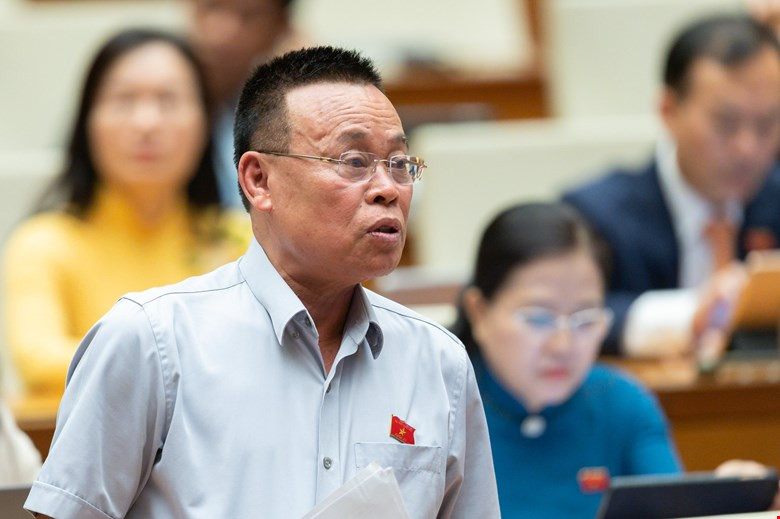
“Practice shows that many countries have strong competitive policies in this field. For example, Thailand exempts personal income tax for up to 10 years for investors and experts working in 10 strategic technology and innovation fields. If we do not have attractive and competitive policies, we will miss the opportunity to attract talent and it will be difficult to create long-term technological breakthroughs,” said Mr. Nguyen Nhu So.
Regarding the content of Chapter V of the draft Resolution regulating support for science and technology, delegates proposed adding a provision on supporting costs for registration and protection of intellectual property rights, while shortening the time for processing related procedures, especially for small and medium enterprises and creative startups.
According to Mr. Nguyen Nhu So, in the context of the global economy shifting strongly to a knowledge-based model, intangible assets - especially intellectual property rights (IP) - increasingly play a decisive role in national competitiveness. For startups, core products are technology, algorithms or exclusive ideas; if not protected promptly, businesses can easily lose their market, have their technology copied or face serious legal risks.
In Vietnam, most startups and small and medium-sized enterprises do not have the financial and legal capacity to register IP correctly and on time. Many cases have lost their trademarks, had their domain names taken over, or were unable to raise capital due to lack of ownership certificates, seriously affecting the value of the business and its ability to develop in the international market.
Source: https://vietnamnet.vn/lo-ngai-doanh-nghiep-truc-loi-tu-chinh-sach-uu-dai-2401682.html


![[Photo] Scientific workshop "Building a socialist model associated with socialist people in Hai Phong city in the period of 2025-2030 and the following years"](https://vphoto.vietnam.vn/thumb/1200x675/vietnam/resource/IMAGE/2025/5/21/5098e06c813243b1bf5670f9dc20ad0a)

![[Photo] Determining the pairs in the team semi-finals of the National Table Tennis Championship of Nhan Dan Newspaper](https://vphoto.vietnam.vn/thumb/1200x675/vietnam/resource/IMAGE/2025/5/21/eacbf7ae6a59497e9ae5da8e63d227bf)
![[Photo] Prime Minister Pham Minh Chinh receives Rabbi Yoav Ben Tzur, Israeli Minister of Labor](https://vphoto.vietnam.vn/thumb/1200x675/vietnam/resource/IMAGE/2025/5/21/511bf6664512413ca5a275cbf3fb2f65)
![[Photo] Prime Minister Pham Minh Chinh attends the groundbreaking ceremony of Trump International Hung Yen Project](https://vphoto.vietnam.vn/thumb/1200x675/vietnam/resource/IMAGE/2025/5/21/ca84b87a74da4cddb2992a86966284cf)




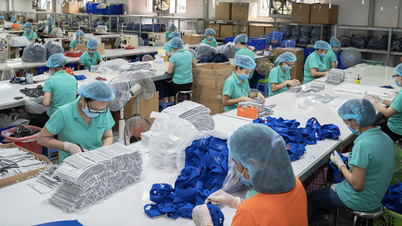
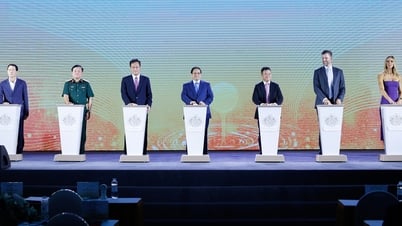











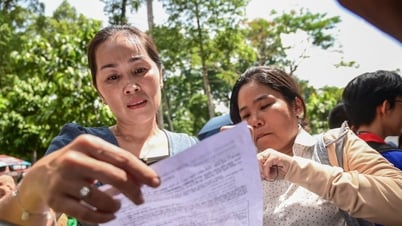





































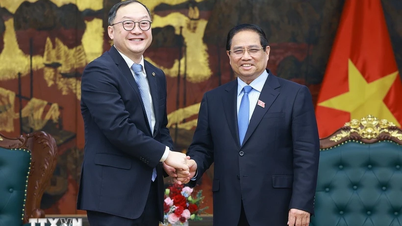






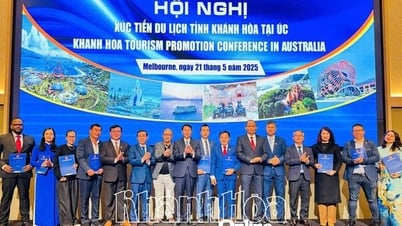
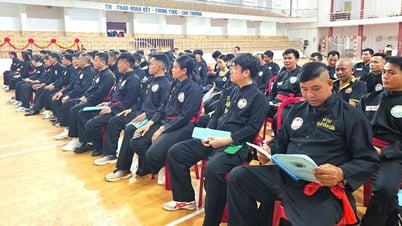









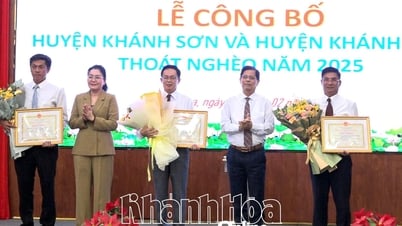













Comment (0)